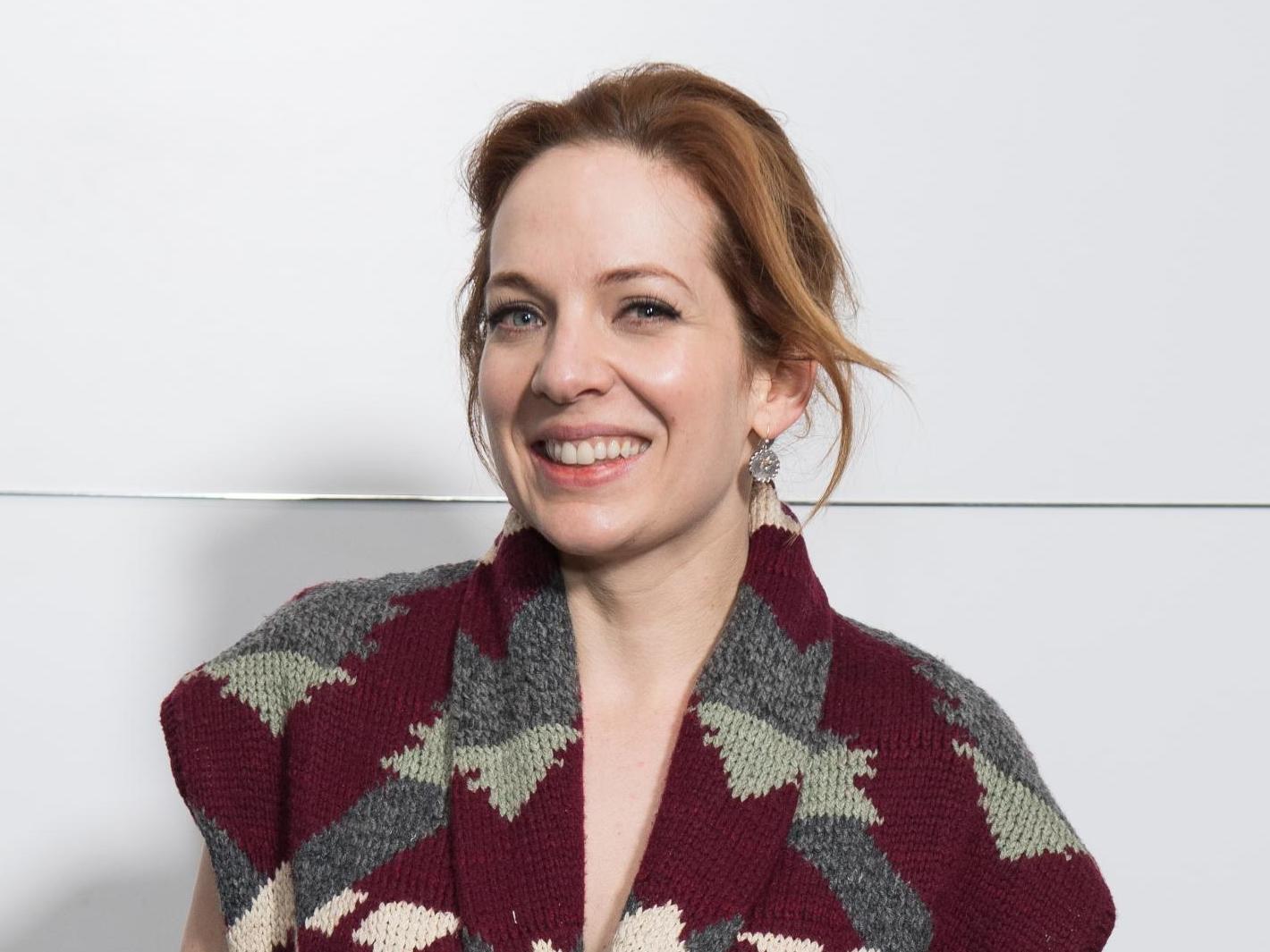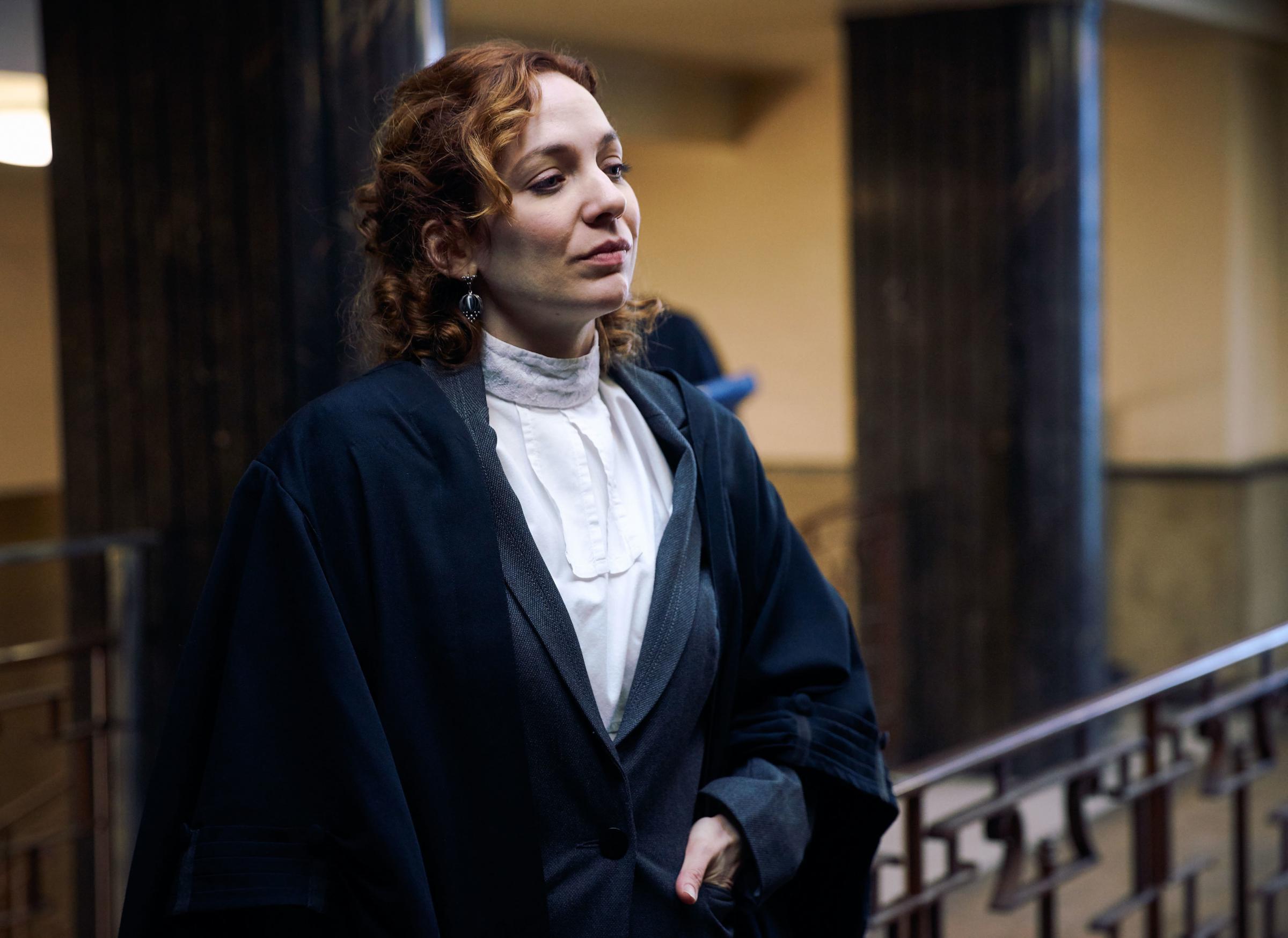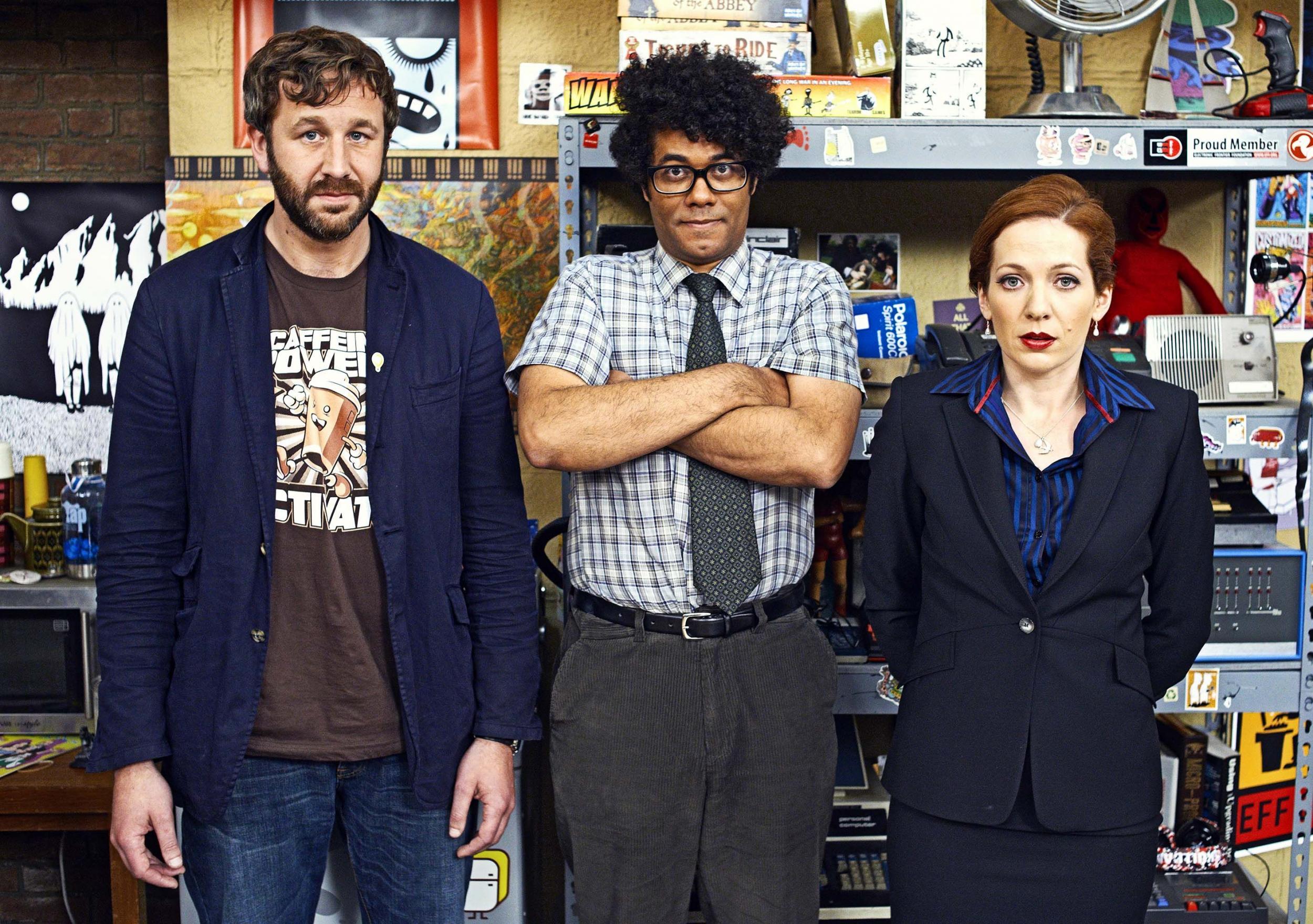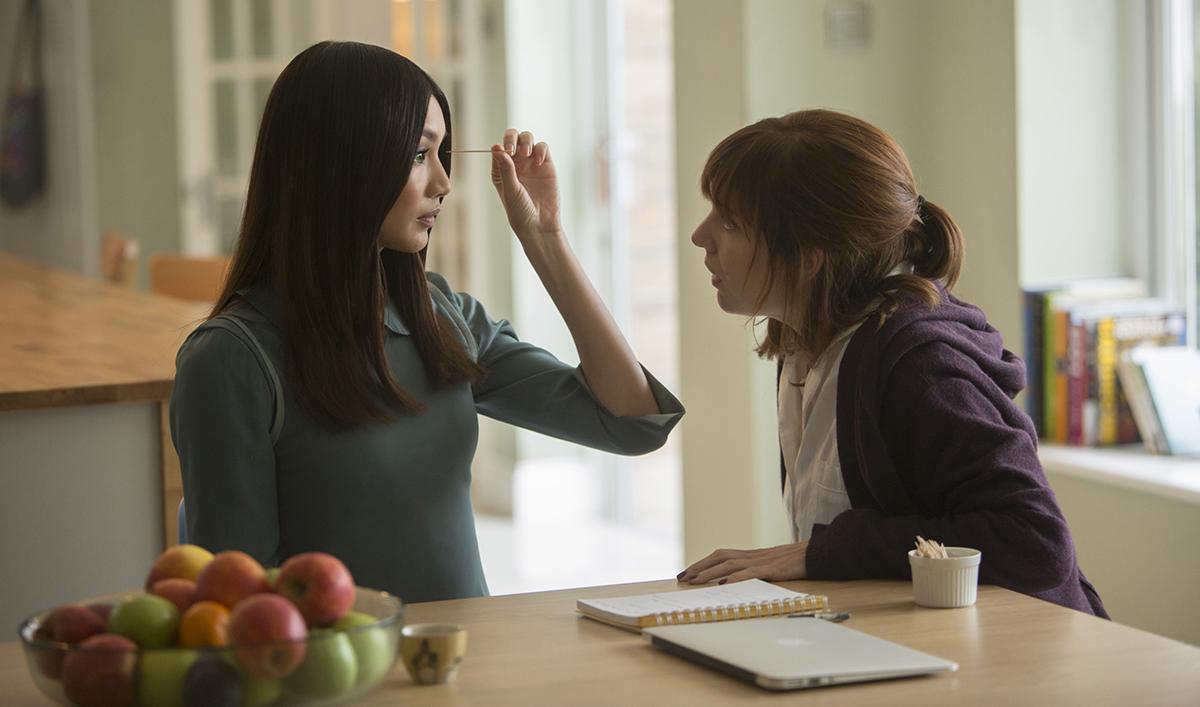Katherine Parkinson: ‘I didn’t have to hide my pregnancy, but of course I’m not playing the crumpet’
The ‘IT Crowd’ and ‘Humans’ star, who plays a criminal barrister in new BBC2 sitcom ‘Defending The Guilty’, talks to Charlotte Cripps about work and home life balance as a mum


Your support helps us to tell the story
From reproductive rights to climate change to Big Tech, The Independent is on the ground when the story is developing. Whether it's investigating the financials of Elon Musk's pro-Trump PAC or producing our latest documentary, 'The A Word', which shines a light on the American women fighting for reproductive rights, we know how important it is to parse out the facts from the messaging.
At such a critical moment in US history, we need reporters on the ground. Your donation allows us to keep sending journalists to speak to both sides of the story.
The Independent is trusted by Americans across the entire political spectrum. And unlike many other quality news outlets, we choose not to lock Americans out of our reporting and analysis with paywalls. We believe quality journalism should be available to everyone, paid for by those who can afford it.
Your support makes all the difference.Katherine Parkinson is sitting in the corner of an oak-panelled former courtroom in a West End hotel. The star of The IT Crowd is instantly recognisable with her auburn hair and striking green eyes, as I’m ushered into the room by a PR wearing a barrister’s wig.
It was once the infamous Number One Courtroom, where Oscar Wilde, Mick Jagger and John Lennon stood trial, and is a perfect fit for her new BBC2 legal sitcom, Defending the Guilty, which starts today.
Written by Cuckoo‘s Kieron Quirke and based on the barrister and columnist Alex McBride’s book Defending the Guilty: Truth and Lies in the Criminal Courtroom, this part procedural drama, part comedy has a sharp-edged message: that the current legal system is not about justice, but a game that is played to win.
“I sort of had aspirations of going into that world,” says Parkinson, who stars as the cynical criminal barrister, Caroline. “It was quite an ethical choice to become a barrister. But also I was a fan of This Life in the Nineties,” she says – a drama that, like Defending The Guilty, centred on the lives of law graduates launching their careers.
Parkinson’s Caroline is the pupil mistress to idealist trainee barrister Will Packham (Will Sharpe) – roughly based on McBride – who is competing against three other pupils for a place in chambers.
It’s a cut-throat world but from the offset, Caroline doesn’t help to build Will’s confidence by inappropriately calling him “baby boy”, even “mummy’s bouncy boy”; referring to herself as “mummy” when talking to him. When he objects – finding it, quite rightly, all a bit weird – she says matter of factly to him: “But mummy wants to call herself mummy.”
It’s clear there is a lot going on here that Freud could have had a field day with, which adds intrigue, even if it is not always laugh-out-loud funny – but, Parkinson adds, what attracted her to the script was that it is “a credible insight into the current legal system”, not just a comedy. It’s fair to say then, based on watching the TV show, that the legal profession is pretty bonkers.
Soon Caroline’s naive protégé wakes up to the reality that he isn’t helping people in need, but mostly defending the guilty, while also running a lot of errands for Caroline, who gets him on the “crucial business” of fetching her laptop lead from chambers and running to the shop for a cinnamon twist (she has a pastry obsession).

She gets the best lines. “Mike, I want to get you off. But we have fewer defence points than I have viable eggs.” When she asks if there is a solution, he says, “Have you considered freezing them?”

Watch Apple TV+ free for 7 days
New subscribers only. £8.99/mo. after free trial. Plan auto-renews until cancelled

Watch Apple TV+ free for 7 days
New subscribers only. £8.99/mo. after free trial. Plan auto-renews until cancelled
Parkinson, of course, is best known for playing the technologically clueless head of the IT department, Jen Barber, in four series’ of The IT Crowd from 2006 to 2013 – for which she received a Bafta TV Award in 2014. It also made household names of co-stars Richard Ayoade and Chris O’Dowd.
In fact, it was O’Dowd – who studied with Parkinson at the London Academy of Music and Dramatic Art (LAMDA) – who suggested she audition for the role that gave her cult status.
Parkinson, who feels she “grew up” on The IT Crowd, says she had to deal with a lot of tricky situations as a young actress in the world of comedy: “I did feel like I was the one in heels and pencil skirt – and I did feel slightly like ‘So hang on, where is my funny costume?’” she tells me about landing the role. “But generally I haven’t been the actress who has to have sex appeal. That wasn’t my way in. So I haven’t had lunches with people who have tried to have sex with me – well, not that I’m aware of! It was struggling to get your voice heard a bit, not always feeling like you could express yourself fully because you had to be attractive first.”
I press her on the issue of sexism in the industry. “I think it’s getting so much better, and then I think, ‘Is that just because I’m getting older?’ I’m probably less vulnerable to sexism. And as you get established, you are seen and dealt with on your own terms.”
Parkinson has just started filming the new Catherine Tate film, This Is Nan’s Life, about Tate’s foul-mouthed pensioner character, who first appeared in The Catherine Tate Show. It is being brought to the big screen for the first time, directed by the artistic director of the Donmar Warehouse, Josie Rourke. Little is known about it yet, apart from Tate starring as Joan “Nan” Taylor and Mathew Horne reprising his role as the grandson Jamie.
When we meet, she has recently finished a stint in Laura Wade’s hit West End play Home, I’m Darling. Parkinson’s Judy lives as a 1950s housewife in the 21st century, who clings so desperately to the past that it was dubbed a giant metaphor for Brexit and won her a nomination for an Olivier Award in the best actress category.
Now she is writing a secretive comedy drama for TV, which she will star in herself. “I’d rather not be in it but I think that is the idea,” she laughs. “I am really going to try and put a rocket up my arse to write it.”
She got the ball rolling with her writing when she wrote her debut play, Sitting, as part of a BBC Arts first-time playwrights scheme. It had its premiere at the Arcola Theatre earlier this year, following a month-long run at the Edinburgh Fringe in 2018, where it largely got three-star reviews. The witty and sharp play follows three people having their portrait painted, who talk in monologues about love and loss. I wonder if it comes from her own experiences?
She lets out a loud laugh. “I have experienced it like anybody else but wouldn’t necessarily like to talk publicly about it,” she says. Then she pauses.
“The play’s about suicide actually. Things like that aren’t always things you are completely ready to talk about. But I think everybody has experiences of love and loss. Of people dying suddenly and mental illness. And the guilt that you feel if you haven’t maybe been able to help people out of that. And all the rest of it.” (She says there was a suicide in her family but she isn’t ready to discuss it.)
But when she was approached to write the play her initial reaction was not to do it.
“I was too busy and too scared. Then at the time, people were talking about not enough women writers and I felt like I had almost a moral obligation to try and not worry about it not being perfect. I am a busy working mum and don’t have as much time as I would like in an ideal world – but I was like, ‘Just get over yourself – try and do it’.”
Parkinson grew-up in Kingston upon Thames with her father, the historian Alan F Parkinson, her teacher mother and two brothers. She went to a grammar school, then studied classics at Oxford – where she found acting a relaxing tonic from all the academic work.
“I met these brilliant young people who had just played Cyrano de Bergerac at public school in their own theatres – and it was a bit of a shock. Obviously, it gives you more confidence in the acting profession if you come from that background. I had been to a state school where there wasn’t a great amount of extra curriculum drama available.”
But it didn’t deter her as she won a scholarship to LAMDA – the only drama school she applied for. Does she think that the domination of actors from public school and Oxbridge in the acting profession is a problem?
“I was lucky to get a free education – even at university,” she says. “That doesn’t happen any more and it is hugely expensive. I feel very strongly that people will drop out of the profession early on unless they have private funds. It’s people with money who can make the choice to turn down the regional theatre job because they are waiting on a TV job – but it isn’t fair. It is something that drama schools are conscientiously trying to change through bursaries because we play people from all walks of life.”
Parkinson left LAMDA early to star in a play, The Age of Consent, in 2002, with one review claiming her performance was “nothing short of miraculous”.

But after a very fallow period (“I was in two plays back to back at The Gate and I was on £140 a week – not enough to live on”), she was not far from giving it up and getting a proper job when she got her lucky break playing receptionist Pauline Lamb for three years in ITV’s long-running medical comedy drama Doc Martin.
The rest is history and since then Parkinson, who now has two daughters, Gwendolyn, four, and Dora, six, has had to learn to navigate the work and home life balance as a mum. In fact, she started filming the sci-fi drama Humans in 2014 when Gwendolyn was six weeks old – leaving her actor husband Harry Peacock and parents to do the childcare – and look after Dora, who was then only 16 months old.
She was breastfeeding at the time and took an electric pump to work to express the milk. “The expressing didn’t come naturally to me – because I am not somebody who wants to sit here with a machine making a noise while clamped to my breast and talking to men at work,” she admits. “But I knew that I was only happy to go and do it if I could carry on breastfeeding. I’m not saying everybody should breastfeed. For me, it meant the bond was there for the temporary leave of absence.”
The crew who were mostly men went out of their way to make her feel comfortable because “the reality was I had to do it every two hours”. “They were mostly dads and they knew what the situation was,” she says. “The truth is I would have very happily stayed at home but couldn’t – I didn’t have the financial choice not to work.”
Parkinson managed to complete eight episodes of Humans, “but to be honest it was part-time – I only worked 10 days a month,” she says, although she notes that “it was physically hard to go back to work so soon”. She nearly turned the role down, “feeling guilty” leaving her baby but her husband convinced her to play the role of Laura Hawkins, a mother of three trying to juggle family life with her career as a lawyer. The character chimed with her, but unlike Parkinson who could rely on her family for childcare, Laura finally gives in to getting a “synth” – called Anita, played by Gemma Chan, who acts as a robotic babysitter.
Do actors think they have to drop out of their acting career when they have children or is it getting easier? “It is a feminist issue really. I have younger actress friends who talk about having to hide their pregnancy. And I think, ‘Why should you hide your pregnancy?’ I didn’t feel I had to do that. But of course, that is because I wasn’t always playing the crumpet in things.”

All throughout her career, Parkinson has balanced TV and theatre jobs in what seems like the perfect balance. But she prefers the stage, “not least because it’s at night time and it suits my body clock,” she says.
She has appeared in many notable productions, including the Royal Court’s 2007 adaptation of The Seagull, alongside Kristen Scott Thomas, Chiwetel Ejiofor and Carey Mulligan, and the 2009 play Cock at the Royal Court, with Ben Whishaw and Andrew Scott.
On TV, she played another powerful straight role alongside Maggie Gyllenhaal in Hugo Blick’s political spy thriller The Honourable Woman, in 2014, as the pregnant Rachel Stein, who feels increasingly isolated from her family in a world of conspiracy and espionage. In Kay Mellor’s pregnancy drama In The Club, also in 2014, she was Kim Hall, a mother with her own website, Kim and the Bump, offering advice for other expectant mums.
Then in 2015 Parkinson starred in the BBC One comedy series The Kennedys, written by Emma Kennedy, about growing up on a Stevenage New Town estate in the 1970s. She has also appeared in comedy films such as How to Lose Friends and Alienate People (2008) and The Boat That Rocked (2009).
The only area Parkinson has left untouched is Hollywood. Would she ever take a role there now? “It’s changing in an exciting way – there are lots more co-productions with America happening here. My personal reason for not going out there is that I don’t want to take my children out of school,” she says. “I think what excites more me is doing a play on Broadway. I get more excited by New York than LA.”
Defending The Guilty is on tonight on BBC2 at 10pm
Join our commenting forum
Join thought-provoking conversations, follow other Independent readers and see their replies
Comments